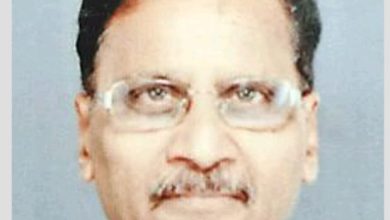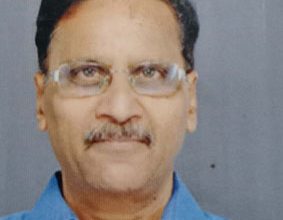Empowering women in India’s journey towards national development

Rajendra Kumar Sharma
Swami Vivekananda once said, “It is impossible to think of the welfare of the world until the condition of women is improved. We have to realize the real place and value of women in society. In public bodies and government jobs, women can demonstrate greater efficiency than men, especially in the areas of management and planning. Socially, the current situation is that men are income earners and women are the ones who manage the household with this income. It is believed, and according to economics, the management of that income is more important than earning income, which women do with full efficiency and skill. The Finance Minister of the country, Honorable Mrs. Nirmala Sitharaman, is a live example of this statement.
If we look at the various schemes made for women, such as free rides for women in buses, trains, and metro, reservation in metro coaches for women, baby feeding rooms for women at train and metro stations, diaper changing facilities, and vanity cum changing rooms, we will find that even after so many schemes, women are not getting as many rights and freedoms as expected.
All these facilities have increased the mobility of girls and working women, but they are only available during a fixed daily period, usually from 8 in the morning to 5 or 6 in the evening. After 9 pm, hardly any woman would like to travel for a job or education. Much of our public transport infrastructure is designed around male-led travel, which is the biggest barrier to women’s mobility. Along with free travel, it is also necessary for public transport and public places to be safe for women.
Based on a detailed study of the travel patterns of daily commuters traveling in suburban trains, the Mumbai Railway Development Corporation, working with the World Bank, has made stations and trains women-friendly, prioritizing the issue of women’s safety, according to a news release. A plan to make it more secure is being worked on, under which emphasis has been laid on the need to work on other facilities besides women special trains and buses. One meaningful initiative can be the appointment of more women employees in public means of transport like buses, suburban trains, metros, etc.
Kochi Metro is a classic example of women’s empowerment. 80% of the employees working in the Kochi Metro Rail are women employees. Participation of women employees has been ensured in ground staff, operators, and loco drivers. Out of 39 loco pilots, 7 are women loco pilots.
Women and girls are unable to contribute to employment, education, and care services. The main reason for this is the lack of security in our means of public transport and public places. Studies show that the worry about moving safely outside a certain time period is the biggest barrier for girls and women to attend school, college, and work. The threat of sexual harassment makes women think twice before stepping out. It has been observed that women are able to use public transport only as long as there are few crowds in them. Late at night, when the number of passengers in public transport is negligible, the safety of women remains a major issue that prevents them from venturing out.
Under the Nirbhaya Fund, the center is providing financial assistance to the states to enhance the safety of women. If women’s participation in national development is to be ensured, two main barriers have to be removed: first, by increasing the number of women security staff at public places, making them safe for women, and secondly, by appointing more women staff in the operation of public transport systems and by appointing women security staff inside buses and trains to make them safe for women. These measures can ensure that women and girls can work longer hours in offices, study in good educational institutions, and have wider opportunities for entrepreneurship. Such initiatives can play an important role in ensuring women’s participation in making India’s economy more robust.
(Writer is a Columnist & Sr. Educator, Dehradun, Uttrakhand. Views are personal)






